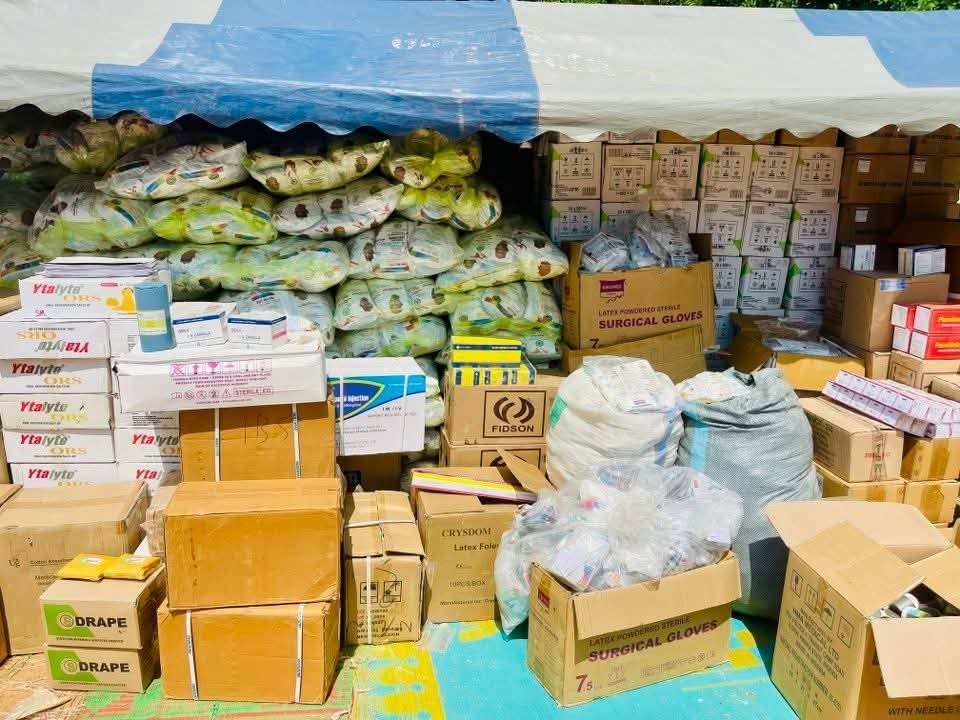The Kano State Government KNSG has flagged off the first round of the 2025 Maternal, Newborn and Child Health Week (MNCHW) with the distribution of 6,000 delivery packs and 500 Caesarean section (C/S) kits to health facilities across the state.
Governor Alhaji Abba Kabir Yusuf, represented by his deputy, Comrade Aminu Abdussalam Gwarzo, presided over the official launch ceremony held at Birji Primary Health Centre in Madobi Local Government Area.
He described MNCH Week as a week of extensive healthcare services delivered to the state’s growing population, particularly in rural and underserved communities across all 44 Local Government Areas.
He noted that, the statewide campaign includes Routine immunization for children, Vitamin A supplementation, Distribution of insecticide-treated mosquito nets to pregnant women.
Others are deworming of children,Antenatal care services,Birth registration,Distribution of essential medicines for hypertension and diabetes, Free maternal, newborn, and child health commodities
Governor Yusuf emphasized his administration’s commitment to strengthening MNCH the state government has supported the mosquito nets distribution initiative by allocating ₦140 million to warehouse mosquito nets distributed during the campaign.
He noted that the intervention is being carried out in collaboration with key partners including the Federal Ministry of Health, Global Fund, Christian Relief Society, and the Society for Family Health.
The governor urged women and caregivers to take advantage of the week-long activities to access essential health services that are provided free of charge.
The Maternal, Newborn and Child Health Week is aimed at improving health outcomes for vulnerable populations by delivering life-saving interventions, promoting early detection and prevention of diseases, and ensuring access to critical maternal and child care services.
In his goodwill message, the Chief of UNICEF Field Office in Kano, Mr. Rahama Rihood Mohammed Farah, called on the state government to increase paid maternity leave days to better protect maternal and infant health and promote exclusive breastfeeding.
Farah emphasized the importance of supportive workplace policies for mothers, especially in the early stages of a child’s life.
He further urged the state government to allocate more resources to maternal and child health services in 2025, noting that UNICEF is prepared to match these efforts by procuring additional commodities such as Ready-to-Use Therapeutic Food (RUTF) and Multiple Micronutrient Supplements (MMS) through the Child Nutrition Fund (CNF).
Highlighting the need for continuity, Mr. Farah recommended that Kano State conduct the second round of MNCH Week no later than December 2025, and ensure that deworming tablets are procured in sufficient quantities to reach all children aged 12–59 months across the state.
He also stressed the importance of investing in healthcare workforce expansion, particularly in rural areas, to support 24-hour service delivery and bridge access gaps in underserved communities.
“The implementation of two rounds of MNCH Week annually allows for the delivery of essential services, including Vitamin A supplementation, deworming, antimalarial treatment, immunization, and MMS for pregnant women. These interventions are key to improving health outcomes among women and children in Kano State”
He noted that, for the first round of 2025, UNICEF has supplied adequate quantities of Vitamin A and MMS to reach more than 2.6 million children aged 6–59 months and around 500,000 pregnant women, covering 80% of the targeted population.
“UNICEF is also encouraging caregivers to take full advantage of the MNCH Week to improve routine immunization coverage, with special focus on pentavalent, polio, HPV, and tetanus-diphtheria (Td) vaccines”
Mr. Farah reaffirmed UNICEF’s commitment to working closely with the Kano State Government to improve nutrition, health, and survival of women and children across the state.
The event was attended by the commissioner for health, Chairman Madobi local government area, District head of Shanono, Development partners, political office holders and all relevant stakeholders.





